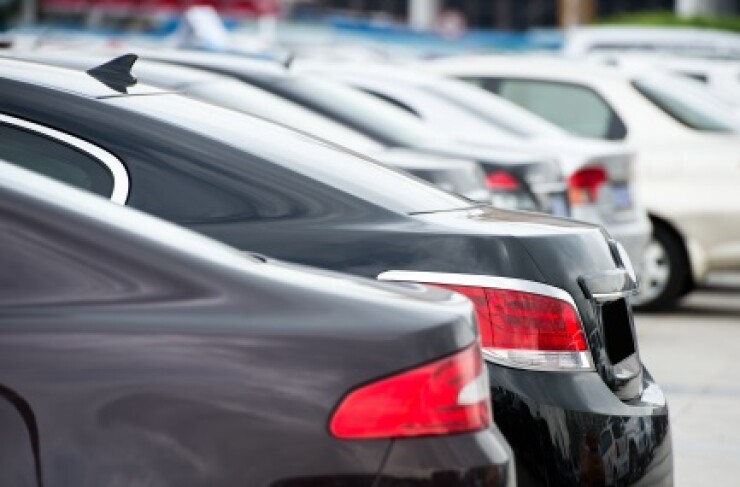CarMax Auto Finance had to increase the level of investor protection on its first auto loan securitization of the year in order to offset rising loss expectations, according to rating agency reports.
The transaction, CarMax Auto Owner Trust 2018-1, is provisionally sized at $1.15 billion but could be upsized to $1.36 billion. Four tranches of senior notes will be issued; assuming the deal is upsized, these will consist of a $237 million money-market tranche, two class A-2 tranches due 2021, one fixed-rate, one floating rate; a $336 million tranche of four-year Class A-3 notes; and a $95.2 million tranche of 4.5-year Class A-4 tranche. All of the term tranches carry preliminary AAA ratings from Fitch and S&P Global Ratings, and benefit from 8% credit enhancement – a slight increase from 7.15% for the comparable of its previous transaction.

The increased CE reflects growing levels of delinquencies in recent 2015-2016 vintage originations .
There will also be three subordinate classes of notes: a $32.4 million Class B tranche due September 2023 (rated AA by Fitch and S&P), a $29.47 million Class C tranche due November 2023 (rated A) and a BBB-rated Class D series of notes due 2024 sized at $22 million.
The credit quality of the collateral pool is consistent with those of other recent CarMax deals, per FItch, with a weighted average FICO of 707 and a 31.3% concentration of loans to buyers with 750-plus scores. The high percentage of longer-term loans over 60 months (59.4%) and 95% weighted average loan-to-value ration is also in line with recent CarMax deals.
Fitch has set a cumulative net loss expectation of 2.4% for the life of the deal; S&P has set a range of between 2.2.-2.3%. slightly above the 2.15%-2.25% range from the three prior CarMax deals S&P rated.
Like other lenders, CarMax Financial Services is experiencing weaker performance and higher delinquencies and challenges in declining used-car values affecting residuals on repossessions.
The aggregate balance of the loans is $1.2 billion, with an average current principal balance of $15,979 for 72,329 loans in the pool. The average APR is 7.5%, on weighted average original terms of 65.9 months in the deal. The loans have been seasoned an average of 4.6 months.
Loans are concentrated in California (18%), Texas (11.8%) and Florida (9.2%), but do not include loans concentrated in areas affected by hurricanes that impacted Texas and Florida coast lines.
Passenger cars still account for the largest segment of CarMax pools, amounting to 47.6% of the latest pool in line with recent ABS transactions, according to Fitch. Loans for sport utility vehicles make up 39.2% of the pool. Ford-branded vehicles remain the leading make of vehicle in CarMax’s new deal, with a 10.6% concentration, but the Nissan Altima is the most popular model at 2.4% of the pool.
CarMax Auto Finance serviced $11.3 billion in originated loans as of November 2017, up 9.9% from the same period in 2016. Its total portfolio delinquencies (28,808, valued at $366 million) increased to 3.24% last year, compared to 3.2% at the same point in 2016.
Fitch noted that cumulative net losses in CarMax transactions since 2006 have ranged from 1.27% to 3.94%, and were in the range of 1.7%-2.4% in 2013-2014. “However, securitizations since 2015-1 going into late 2016 are exhibiting signs of weaker performance overall,” the report stated, “with higher delinquencies and losses due to weaker credit quality and higher loss severity stemming from lower recovery rates as used vehicle values have declined starting in the latter half of 2016.”
Since April 2016, S&P has revised the expected losses on 2015 and 2016 CarMax ABS transactions upwards. Most recently, S&P raised the CNL on CAOT 2016-3 to 2.5%-2.6% from the original expected loss levels of 2.15%-2.25%, as well as the loss rate on 2016-2 from 2.1-2.2% to 2.35%-2.5%.




